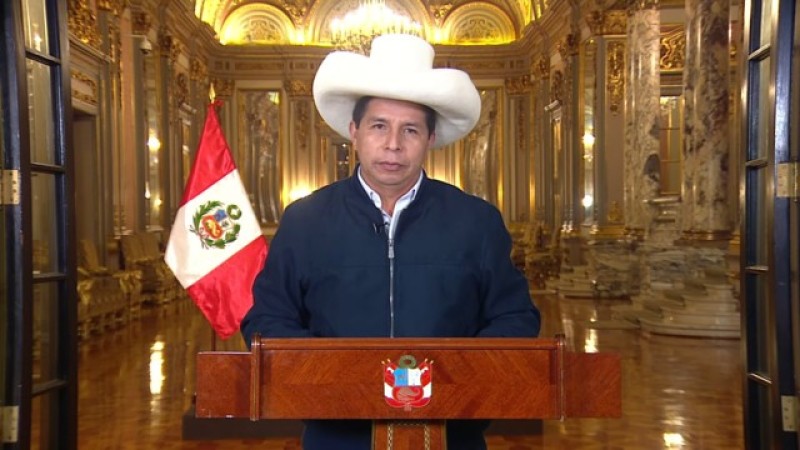Vice President Dina Boluarte then became the sixth Peruvian president in five years and the first female head of state in the country’s history.
During a live stream in which Castillo addressed the nation, he tried to dissolve the congress and impose a “government of exception” allegedly aiming at establishing the rule of law and democracy in a “response to the citizens’ demand.” Castillo said he would rule by decree until new legislative elections.
The announcement came just hours before the body was to vote on whether to impeach Castillo over alleged corruption, the third attempt to impeach him in 16 months.
Two hours after his speech, Peruvian lawmakers voted to remove him from office “due to permanent moral incapacity.” Castillo had survived the two previous impeachment votes.
Castillo had also announced Wednesday a night-time curfew and proposed a reorganization of the judiciary and prosecutor’s office. However, the congress canceled these acts, citing that “no one owes allegiance to a usurping government.”
New president Boluarte accuses Castillo of “perpetrating a breach in the constitutional order” along with the country’s security and armed forces.
“It is a coup that aggravates the political and institutional crisis that Peruvian society will have to overcome with strict adherence to the law,” she wrote on Twitter.
The Public Prosecutor’s Office confirmed that Castillo was arrested and that he is under investigation for “rebellion.” If convicted, he could face 10 to 20 years in prison.
Prosecutor Patricia Benavides, who accused Castillo of corruption in public works about two months ago, rejected any “breach in the constitutional order.”
Shortly after Benavides’ accusation, Castillo denied any wrongdoing and requested the Organization of the American States (OAS) to send a mission to the country to “analyze the situation.”
He said he was the victim of a “new type of coup d’état.” So far, OAS members who went to Peru two weeks ago have not issued any conclusions.
About an hour after his speech, several members of Castillo’s Cabinet resigned, citing democratic principles as the reason for their resignation. The country’s ambassador to the UN called Castillo’s action a “coup d'état” upon leaving office.
Castillo’s party leader said he would not support the action.
These events recall a “self-coup” carried out in the early 1990s by another Peruvian president, Alberto Fujimori, who shut down congress and intervened in the judiciary. Unlike Castillo, Fujimori had support from the armed forces and the people.



